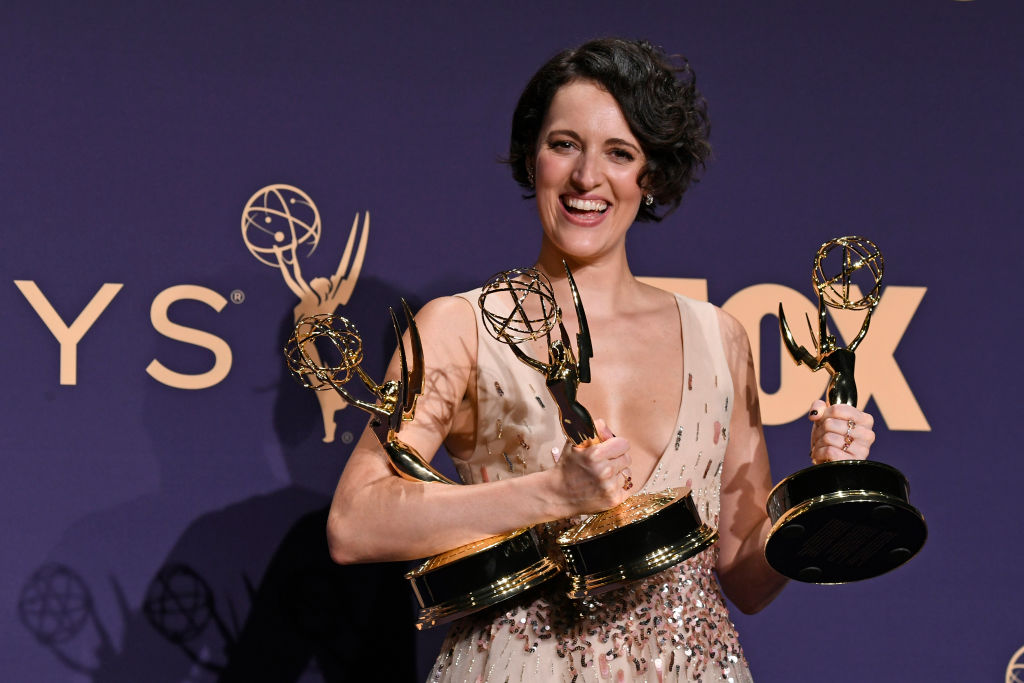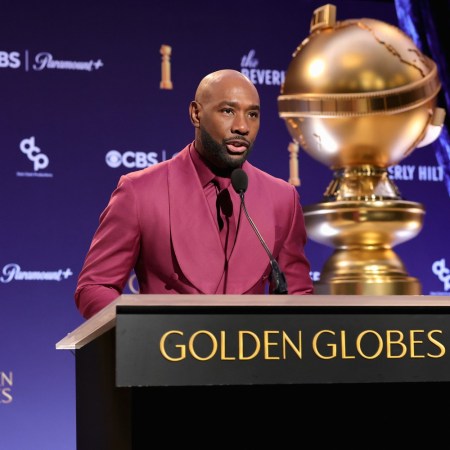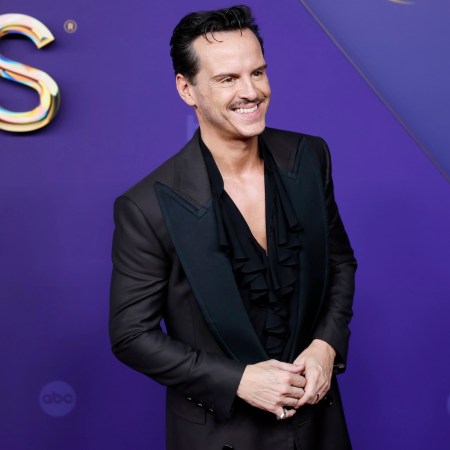“Are the Emmys woke, or is that just something … just something that … this is why people don’t do this? Because it sucks,” Thomas Lennon awkwardly cracked while bailing on a botched joke midway through its delivery. Following the lead of the Oscars, the 71st Primetime Emmy Awards went hostless this year, but Lennon served as the self-described “sherpa through the lulls” at the Microsoft Theater and (perhaps inadvertently) illustrated why boiling down decades of representation issues into a punchy quip about wokeness is ill-advised to say the least.
So we won’t do that. There is still, no doubt, a long way to go when it comes to recognizing actors and actresses of color or members of the LGBTQ+ community for their talents or giving women access to the types of meaty, complex roles their male peers take home trophies for on a yearly basis. But last night’s Emmys took some significant steps in the right direction in a night of surprise wins, with promising new talents winning big over established favorites and a stunning bit of history being made. Here are the evening’s biggest takeaways.
A night of upsets
Perhaps the biggest surprises of the night came when Phoebe Waller-Bridge and Fleabag beat out Julia Louis-Dreyfus (who was looking to make history and become the owner of the most Emmys of all time) and the final season of Veep for Outstanding Lead Actress in a Comedy Series and Outstanding Comedy Series, respectively. But this year’s Emmys had upsets in nearly every category. (Outstanding Lead Actress in a Drama Series winner Jodie Comer didn’t even invite her parents because, as she told the crowd, “I didn’t think it was my time.”)
Billy Porter made history with his surprise victory for Pose, becoming the first openly gay black man to win Outstanding Lead Actor in a Drama Series. He beat out some big names — including Kit Harington for Game of Thrones, Bob Odenkirk for Better Call Saul, Jason Bateman for Ozark and Milo Ventimiglia and Sterling K. Brown for This Is Us — and his moving speech was one of the highlights of the night.
“I am so overwhelmed and I am so overjoyed to have lived long enough to see this day,” he said, before quoting James Baldwin: “It took many years of vomiting up the filth I was taught about myself and halfway believed before I could walk around this Earth like I had a right to be here.”
Another powerful moment came when 21-year-old Jharrel Jerome took home Outstanding Lead Actor for a Limited Series or Movie for When They See Us. Jerome won the stacked category full of A-listers like Mahershala Ali, Benicio Del Toro, Hugh Grant, Sam Rockwell and Jared Harris.
“I feel like I should just be in the Bronx right now, chilling, waiting for my mom’s cooking or something,” he said. “But I’m here in front of my inspirations. I’m here in front of people I’m so motivated by…But most importantly, this is for the men we know as the Exonerated Five.”
Those men, previously known as the Central Park Five — Antron McCay, Raymond Santana, Kevin Richardson, Korey Wise and Yusef Salaam — were on hand to cheer for Jerome, giving him a standing ovation.
A celebration of complex female characters
“It’s just really wonderful to know — and reassuring — that a dirty, pervy, angry, messed up woman can make it to the Emmys,” Phoebe Waller-Bridge told the crowd as she accepted the first of many awards that night for Fleabag. She dominated the Comedy categories with her deeply touching (and yes, hilarious) tale about grief and love, but her richly penned female characters were also rewarded on the Drama side with Jodie Comer’s victory for Killing Eve.
While Waller-Bridge’s talent is undeniable, she’s far from the only one writing three-dimensional women, and last night’s Emmys honored plenty of complex female characters — something that’s long overdue. Michelle Williams earned her first Emmy for her portrayal of Gwen Verdon in FX’s Fosse/Verdon, and in one of the night’s most memorable speeches, she urged studio heads to continue to give women the space to create and called for pay equality.
“I see this as an acknowledgment of what is possible when a woman is trusted to discern her own needs, feels safe enough to voice them, and respected enough that they’ll be heard,” she said. “When I asked for more dance classes, I heard yes. More voice lessons, yes. A different wig, a pair of fake teeth not made out of rubber, yes. And all of these things, they require effort and they cost more money, but my bosses never presumed to know better than I did about what I needed in order to do my job and honor Gwen Verdon. And so I want to say thank you so much to FX and to Fox 21 Studios for supporting me completely and for paying me equally, because they understood that when you put value into a person, it empowers that person to get in touch with their own inherent value, and then where do they put that value? They put it into their work.”
“And so the next time a woman — and especially a woman of color, because she stands to make 52 cents on the dollar compared to her white, male counterpart — tells you what she needs in order to do her job, listen to her,” she continued. “Believe her. Because one day she might stand in front of you and say thank you for allowing her to succeed because of her workplace environment and not in spite of it.”
A power shift
HBO still managed to win the night, taking home 34 awards overall, but some major victories by Amazon’s Prime Video (and an almost-clean sweep of the Comedy categories by the streaming service) indicated a shift in power from old favorites like Veep and Game of Thrones to newer series like Fleabag and The Marvelous Mrs. Maisel.
The majority of HBO’s 34 awards were technical awards handed out at the Creative Arts Emmys, and the network earned just nine trophies during the primetime broadcast. Game of Thrones did take home Outstanding Drama Series for its final season, and Peter Dinklage won Outstanding Supporting Actor in a Drama Series for his work on the show, but for a series that earned a record-setting 32 nominations this year, it was an unimpressive showing. Game of Thrones took home just 12 of those 32 awards — 10 of which were given out at the Creative Arts ceremony last week.
Veep was also denied a victory lap for its final season, getting completely shut out of the nine awards for which it was nominated. Instead, the evening felt like a passing of a torch, with Maisel and Fleabag leading Amazon’s impressive showing. The streaming service also sent a message to its rival Netflix, which took second place with 27 wins overall but only won a measly four awards during the primetime telecast. There won’t be a third season of Fleabag (barring a change of heart from Waller-Bridge), but even so, the future’s looking bright for Prime Video.
This article was featured in the InsideHook newsletter. Sign up now.
























